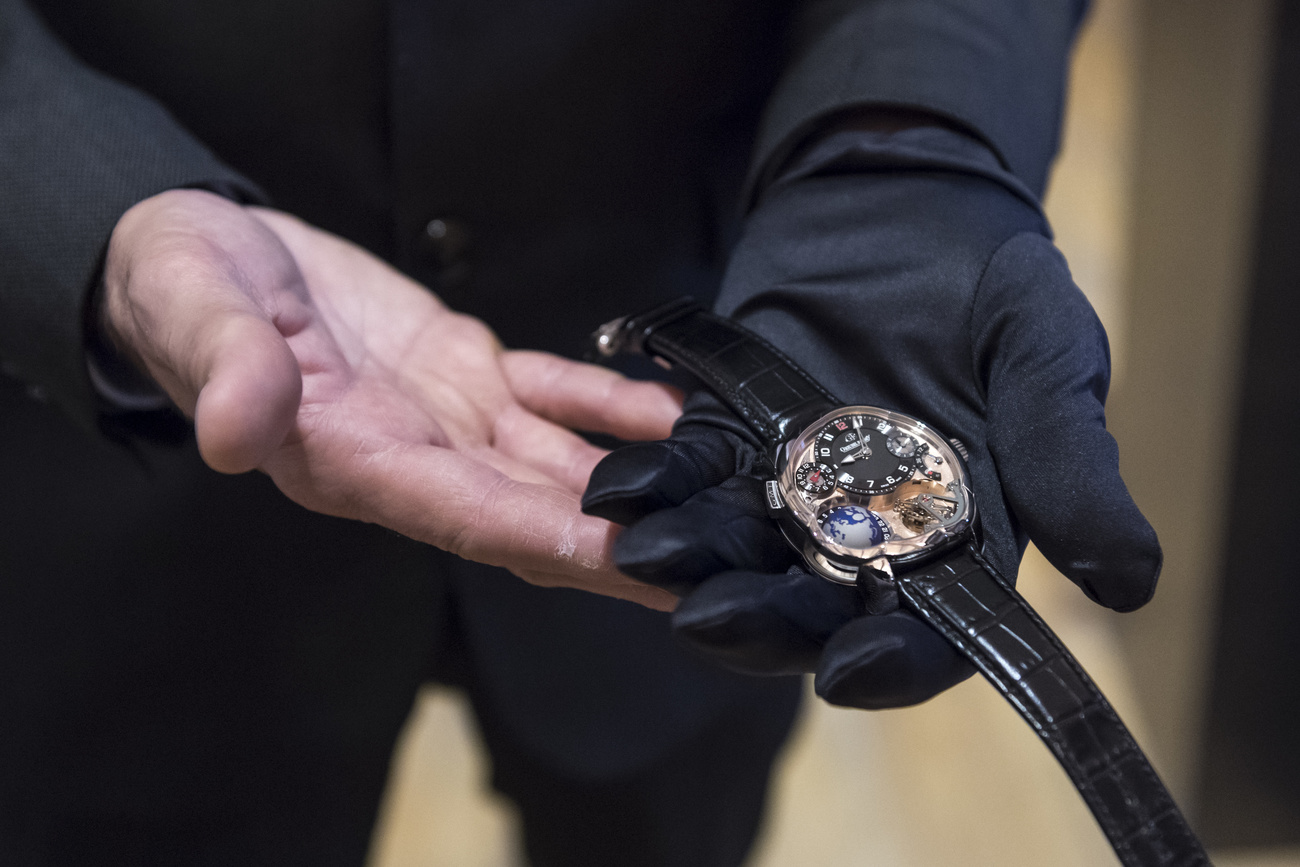
Embattled Swiss watch industry targets mainland China

The absence of tourists due to Covid-19 will have significant negative repercussions on the Swiss watch industry. In an attempt to make up for this loss of income, manufacturers are focusing their activities more on mainland China as well as easing off the bling.
Foreign visitors, in particular the Chinese, account for around half of the revenue earned by Swiss watch retailers and manufacturers in Switzerland. Domestic sales account for 4-5% of the industry’s turnover, according to estimates by Bank Vontobel.
The watchmaking houses will not be able to compensate for the loss of income caused by the Covid lockdown and the slow recovery of tourism, but various initiatives are being implemented.
Cartier, for example, launched its Pasha watch on July 1 in mainland China, while the rest of the world will have to wait until September 4.
“China is where the main clientele is to be found, not only of Swiss watchmaking but of the luxury sector in general,” says René Weber, a luxury sector specialist at Bank Vontobel.

More
Swiss watchmaking: where things stand
Duty-free development
Around a third of the global turnover of personal luxury goods is generated by the Chinese. In Switzerland, Chinese account for 10% of tourists, a fivefold increase since 2009.
Due to a roughly 30% price difference between China and Europe, a large majority of Chinese prefer to buy their timepieces when travelling. Only 30% of spending on luxury goods is actually done in China.
Weber points out that a recent measure allowing for larger purchases in some duty-free shops in China could boost the sale of watches and jewellery in this market.
Less bling
Another initiative to encourage people to buy timepieces is the launch of less ostentatious articles in the entry-level segment of watchmaking houses.
The prices of new Parmigiani watches launched in July range between CHF14,000 ($14,800) and CHF20,000, “practically in the entry-level segment of this specialist fine watchmaking house”, points out Bruno Jufer, the brand’s Swiss market manager.
An executive from the Richemont group, owner of Cartier and Piaget among others, says: “Faced with the new environment, the houses are going to expand their collections, in particular with watches in steel rather than gold, which are a little less expensive.”
However, René Weber doesn’t think brands will reduce their average selling price, “because Swiss watch exports show that it’s the most expensive timepieces that sell best”.
He also thinks it will be very difficult to get local clients to spend more, especially in Switzerland. In this market he predicts a 50% fall in watch sales, while the Swiss Watch Federation expects overall watch exports to fall by 25-30%.
Bank Vontobel says job cuts at retailers such as Bucherer and Kirchhofer, which have a strong presence in Lucerne and Interlaken, will be almost inevitable, with tourists contributing almost 90% of revenues.
The major brands, with sufficient liquidity, are expected to weather this difficult period better, partly thanks to short-time working, unlike smaller brands and suppliers, where the first layoffs have already been announced.

In compliance with the JTI standards
More: SWI swissinfo.ch certified by the Journalism Trust Initiative






























You can find an overview of ongoing debates with our journalists here . Please join us!
If you want to start a conversation about a topic raised in this article or want to report factual errors, email us at english@swissinfo.ch.